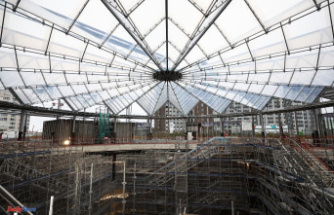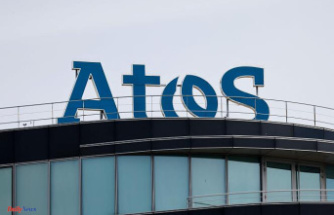The US Federal Reserve agrees to further rate hikes in the fight against inflation. These will have consequences for employment, for companies and for households. A failure of the efforts would be even more painful, says Fed Chair Powell.
US Federal Reserve Chairman Jerome Powell has prepared the financial markets for a long fight against escalating inflation. Restoring price stability will require tightening monetary policy for "some time," he said at the Jackson Hole, Wyoming, central bank symposium. To do this, the tools would have to be used "powerfully". This process will likely weaken the labor market and cause some pain to households and businesses. "These are the ugly costs of fighting inflation. But failure to restore price stability would mean far greater pain," he said.
The statements are seen as a clear signal that the Federal Reserve (Fed) will adamantly continue its rate hike course and that easing is not an option for the foreseeable future. Several US monetary authorities have stressed that it is premature for markets to expect rate cuts in the coming year.
It remains to be seen how high the next rate hike will be. Powell said that would depend on data, which may mean inflation and jobs data in particular. At some point along the way, however, it will be time to slow the rate hikes, Powell said at the Economic Policy Symposium, hosted by the regional Fed Bank Kansas City since 1978. When this point will have come, he left open.
Traders last saw a slightly better chance of a 0.75 percentage point hike than a half a percentage point hike at the September Fed meeting. Powell has previously called interest rates of 3.0 to 3.5 percent by the end of the year the "moderately restrictive level" to aim for, with the economy already slowing slightly.
On the financial markets there is a fear that the central bank could trigger a recession with an overly aggressive course - in other words, economic weakness across the board. After two minus signs in economic output in the first two quarters, the USA is already in a so-called technical recession. In his speech, Powell said the economy continues to show strong underlying momentum despite some mixed growth signals.
Stock indices in Europe and the United States widened their price losses in response to Powell's statements. Investors threw bonds out of their portfolios in anticipation of large increases in interest rates. The yield on 10-year German government bonds rose eight basis points to a two-month high of 1.419 percent. The euro was 1.1 percent higher at $1.0083.












